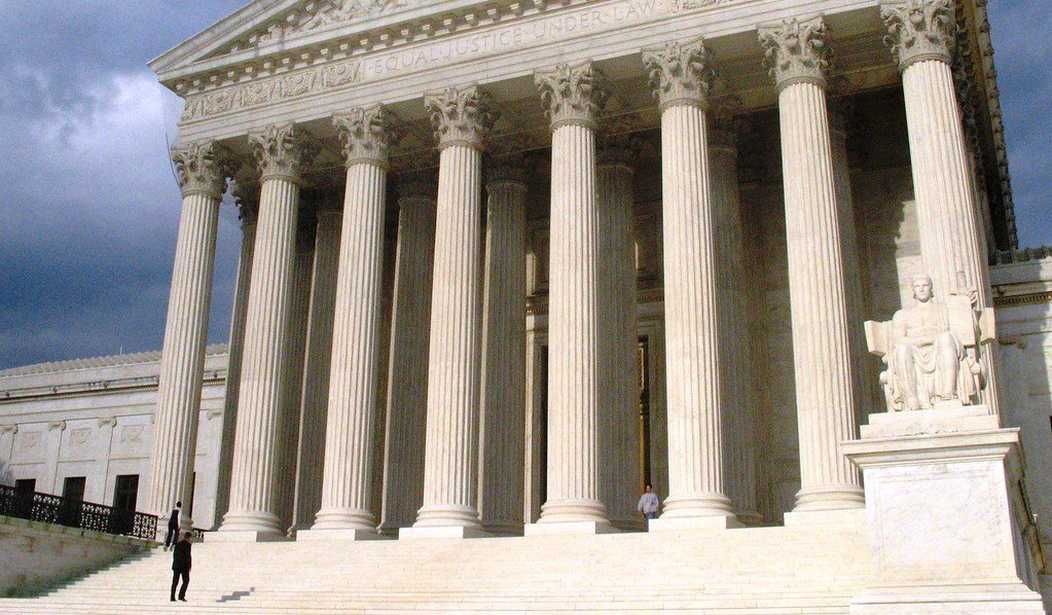Last Thursday, the Supreme Court was scheduled to discuss four Second Amendment cases dealing with restrictions on young adults during its weekly conference. None of the cases appeared in the Court's orders released on Monday morning, which isn't that unusual. What is odd, though, is that they weren't re-listed for this week's conference either, as is usually the case.
NRA v. Glass, West Virginia Citizens Defense League v. ATF, McCoy v. ATF, and Paris v. Second Amendment Foundation have now joined several other 2A-related cases in a legal limbo; not granted cert, not denied, and apparently, not being discussed in conference at the moment either.
The other cases related to the right to keep and bear arms that are still in a holding pattern are U.S. v. Daniels and U.S. v. Sam, which both deal with whether "unlawful" users of drugs can be prohibited from possessing firearms. That issue is going to be addressed in the Hemani case, though, so it's somewhat understandable that the Court would hang on to those cases until the Hemani opinion is released sometime next spring.
There are also a pair of cases dealing with the National Firearms Act; Rush v. United States, an NRA-supported challenge to the NFA's restrictions on short-barreled rifles, and Robinson v. U.S., which also takes on the NFA's restrictions on SBRs.
Finally, there's Duncan v. Bonta, the long-running challenge to California's ban on "large capacity" magazines. This is actually the second go-round for Duncan at the Supreme Court. Justice granted cert back in June, 2022, but vacated the Ninth Circuit's decision upholding the ban and remanded the case back to the lower courts in light of its findings in Bruen. Three years later the lawsuit has once again reached SCOTUS, after the Ninth Circuit said for a second time that the ban is consistent with the national tradition of gun ownership (a decision that overturned the opinion of U.S. District Court Roger Benitez).
California Attorney General Rob Bonta submitted his reply to the cert petition on October 20, and the plaintiffs submitted their response brief on November 5. That same day the Court scheduled Duncan for its November 21 conference, but on November 12 the Court pulled the case from consideration, and so far a new conference date hasn't been assigned.
So what's going on here? The Court doesn't inform anyone about why it's making these moves, but the most likely explanation is that at least some of these cases are going to be GVRed (granted cert, vacated, and remanded) after the justices issue their opinions in Hemani and Wolford v. Lopez; the case challenging Hawaii's "vampire rule" barring concealed carry on all private property unless the property owner explicitly grants permission.
I'd be willing to bet that's what's going on with Daniels and Sam, given that they're challenging the same statute that the Court will address in Hemani. The lawsuits dealing with bans on gun sales and concealed carry licenses to under-21s, aren't as neatly a fit, but that hasn't mattered in the past. Bruen was a carry case, but SCOTUS used that to GVR cases dealing with bans on "assault weapons", "large capacity" magazines, and domestic violence restraining orders.
As for Duncan, the Court may just be holding off on scheduling that for conference until early December. The justices are currently scheduled to discuss lawsuits challenging Washington's mag ban and Cook County, Illinois' ban on so-called assault weapons at its December 5 conference, and I wouldn't be surprised if Duncan is rescheduled for that conference as well.
It's possible, of course, that other 2A-related cases will be relegated to the same legal limbo as the lawsuits discussed above. This Thursday the justices are scheduled to discuss three more prohibited persons cases in conference; Vincent v. Bondi and Duarte v. United States, which both deal with whether 18 U.S.C. §922(g)(1)’s categorical ban on the possession of firearms by felons is unconstitutional as applied to a defendant with convictions for non-violent crimes, and Carbajal-Flores v. U.S., which questions whether 18 U.S.C. § 922(g)(5)(A), which prohibits firearm possession by illegal aliens, is either facially unconstitutional or unconstitutional as it applies to the specific plaintiff.
We'll see if history repeats itself next Monday if these cases aren't included in the Court's orders or re-listed for another conference. I'm hopeful that the Court will ultimately grant cert to either Vincent or Duarte, but the justices may very well decide to keep them in a holding pattern too.
Editor's Note: Second Amendment advocates are doing everything they can to protect our Second Amendment rights and right to self-defense.
Help us continue to report on their legal and legislative efforts.. Join Bearing Arms VIP and use promo code FIGHT to get 60% off your VIP membership.









Join the conversation as a VIP Member